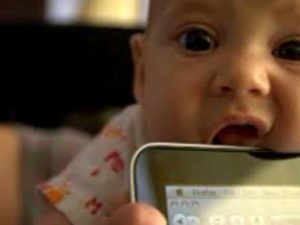Technology Addiction: The Hidden Killer
 You’ve seen people sit in a restaurant not talking to each other. I have. Now technology addiction offers another socially acceptable way to fragment communication bonds.
You’ve seen people sit in a restaurant not talking to each other. I have. Now technology addiction offers another socially acceptable way to fragment communication bonds.
Picture this. I am eating outdoors at a restaurant in Florida. There is a family sitting next to me: parents and two small children under the age of 6. The kids are adorable and well-behaved. I have a fondness for blonde hair blue-eyed kids. I thought I would have them when I got married, but I married a man from India and it was no way the gene pool was going to give me that.
I am glancing at this mother and these kids. The father who sits there the entire time looking at his phone sending messages and writing emails. He never makes eye contact with his family. I am positioned so that I could see her face and she glances at him. She has a look on her face that said, “Why are you doing this? Why not pay attention to your family?” But she never said a word. She just sat there, stared at him, stared at the kids and stared at the phone.
Did he have technology addiction?
Dad could very well have technology addiction. Studies show this is becoming problematic for adults and for young people. Many students complain that they can’t get their parents’ attention because their parents are on their devices all the time. There have been a number of injuries, abuse cases and neglect cases where parents have been paying attention to the technology rather than the children. Some parents have lost custody of their children as a result.
Therapists see people who are not developing the social cues or awareness they need because of it. As a result folks are actually losing the ability to read facial cues and body language. They seem to be inappropriate in some settings.
As a legal nurse consultant you may see examples of healthcare professionals who have technology addiction. There was an anesthesiologist in Texas who was investigated because a patient died on the table because he was looking at his iPad during some type of procedure. There’s been other instances where individuals are not tending to the patient and the patient falls.
In another case nurses who were looking at wedding photos on an iPad didn’t happen to notice the call bell being generated. The person fell and received a significant injury and the nurses were again held responsible for that and could have possibly lost their licenses.
The distracted healthcare professional may be involved in a medical error in a number of ways – not picking up cues, making medication or judgment errors, or not assessing or responding to a patient. Yes, a patient can die as a result. We know that as LNCs.
Legal nurse consultant’s role in technology addiction
In your role as a legal nurse consultant, you can suggest to the attorney questions to ask in a deposition which would reveal distraction and technology addiction. You can explain how the healthcare system works so that the attorney request appropriate information to investigate. Some facilities have policies on the use of social media or personal devices during work hours. You can suggest the attorney look for these policies.
And finally, you can be aware of how you use technology. Are you checking Facebook before you get out of bed? How many times a day do you check email? Are you looking at your phone in a restaurant? Are you one of the approximately 13% of the population who checks email while driving? I hope not. I don’t want you to be generating work for attorneys and legal nurse consultants.
Gain more insights into technology addiction by listening to counselor and expert John Kriger talk about Destructive Technology Addiction for Legal Nurse Podcasts. Listen in here
